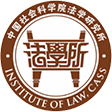 字号:
字号:小
中
大
Democracy is a shared value of all mankind. In today's world, every civilization recognizes the value of democracy, and every democratic system is linked to, learns from and fuses with other democratic systems. As a component of political civilization, each country's democratic system is unique and should be respected and recognized.
The disorder and turmoil caused by the export of U.S.-style democracy
On August 30, 2021, U.S. President Joe Biden announced the completion of the withdrawal of U.S. troops from Afghanistan. This military operation, which took nearly 20 years and cost more than $2 trillion, not only failed to establish a "democratic Afghanistan," but instead brought constant terrorist attacks and endless wars to the people of the country, causing the death of more than 100,000 Afghans. America's defeat in Afghanistan has become a microcosm of the global failure of American-style democracy.
On October 31, 2021, ABC released the results of its latest poll: 57 percent of respondents worldwide and 72 percent in the U.S. believe the U.S. is not a good example of democracy.
From the so-called "third wave of democracy" to the "Arab Spring," many countries have established themselves as democracies following the model of the United States. However, the imagined stability and development did not come as expected. Instead, violent conflicts and armed struggles were frequent. Periodic political instability has become a lingering nightmare for many countries.
Attempts to create so-called "templates" of Western-style democracy outside the Western world through "color revolutions" have met with unprecedented failures. There are many ways to achieve democracy, and there cannot be one size fits all. The imposition of a single yardstick on another country, without taking into account the cultural traditions and realities of that country, is bound to have devastating consequences.
With the support and help of Western countries, a small number of political elites have been seeking private interests and seizing huge wealth under the guise of democracy. The resentment of the general public against this kind of hypocritical democracy has been increasing. Severe confrontation between rich and poor is intertwined with ethnic hatred and sectarian conflicts, which may erupt like a volcano at any moment.
Worse still, the "preachers" of Western democracy, led by the United States, are utterly selfish. They have always tried to satisfy their ambitions to continue their domination of the world by fostering so-called democratic regimes, and they do not hesitate to intervene with the use of force to that end. Such invasions in the name of democracy have, in fact, become a major cause of global instability and turmoil.
Democracy is a brilliant product of mutual exchange and learning
Democracy is a historical phenomenon in the development of the political civilization of humanity. Democracy is not static. It evolves along with the development of human civilization.
The Western concept of democracy, which originated in the ancient Greek city-state of Athens, became full-fledged in Britain and France during the bourgeois revolutions of the 17th and 18th centuries. It was further developed in the United States and Britain in the 19th century.
Western democracies are not unrelated to each other, but are evolving through the fusion of civilizations. Take American democracy as an example. Historically, it has drawn extensively on the ancient Greek model of democracy in Athens, the republican regime of ancient Rome, and the concept of popular sovereignty during the French revolution.
The democratic system of each country and region can only develop and progress and create brilliant achievements if it learns and borrows the best elements of other democratic systems.
Countries should choose democratic systems according to their national realities, history and traditions
Democracy must be viewed in historical and concrete contexts. It must be adapted to the objective circumstances of each country and to the historical mission to be fulfilled.
The Western political thinker Montesquieu pointed out in The Spirit of Laws that law should be related to the natural state of the country; to the cold, hot and warm climate; to the quality, form and area of the land; and to the various ways of life of the people engaged in agriculture, hunting and herding. The same is true for democracy.
American-style democracy is characterized by a two-party system. In 2017, Donald Trump became the president of the United States. Four years later, in 2021, Joe Biden was elected the president of the United States.
German-style democracy is characterized by a multi-party system, often with multiple parties ruling in coalition. From 2005 to 2021, Angela Merkel served as chancellor of Germany for 16 years.
Japan's democratic system has developed its own distinctive characteristics under the influence of the unique Japanese culture. Despite factional politics, the Liberal Democratic Party has long been the dominant force in Japan's political arena.
Democracy takes different forms. It is neither absolute nor fixed. Civilizations are diverse and colorful, and so is democracy. Democracy is not a standard product, with one model and one formula for the whole world. There is no such thing as a one-size-fits-all democracy in the world.
Ill-conceived 'democratic transformation' will inevitably produce negative effects
In order to transform the abstract concept of democratic values into concrete and realistic democratic practice, we must focus on the organic unity of history and reality, theory and practice, form and content, and find the right institutional mechanisms and methods, instead of imagining that a political system can be parachuted from one country to another.
In practical terms, the healthy development of democracy is dependent on a strong state structure, an effective constitutional and legal system and a widespread belief in democratic values. A country should make reasonable arrangements for the nurturing and consolidation of democratic institutions in accordance with its stage of development.
The history of democracy worldwide has shown that blindly copying other countries' democratic systems does not work and can even ruin the future of a country. A democratic system is most reliable and effective when it is rooted in the soil of the country and draws sufficient nutrients from the country's traditions.
History and reality have clearly shown that arrogance and prejudice are the greatest obstacles to the mutual exchange and learning between civilizations. No country should arbitrarily impose its "democratic model" on other countries.
Democracy is a right of all peoples, not the patent of a few countries. There are different paths to happiness, and the right of peoples to choose their own development paths and political systems is itself a meaningful part of democracy.
作者:翟国强,中国社会科学院国际法研究所副所长、研究员;孙南翔,中国社会科学院国际法研究所副研究员;刘志鑫,中国社会科学院法学研究所助理研究员;朱学磊,中国社会科学院法学研究所助理研究员。
来源:CGTN,2021年12月12日。



